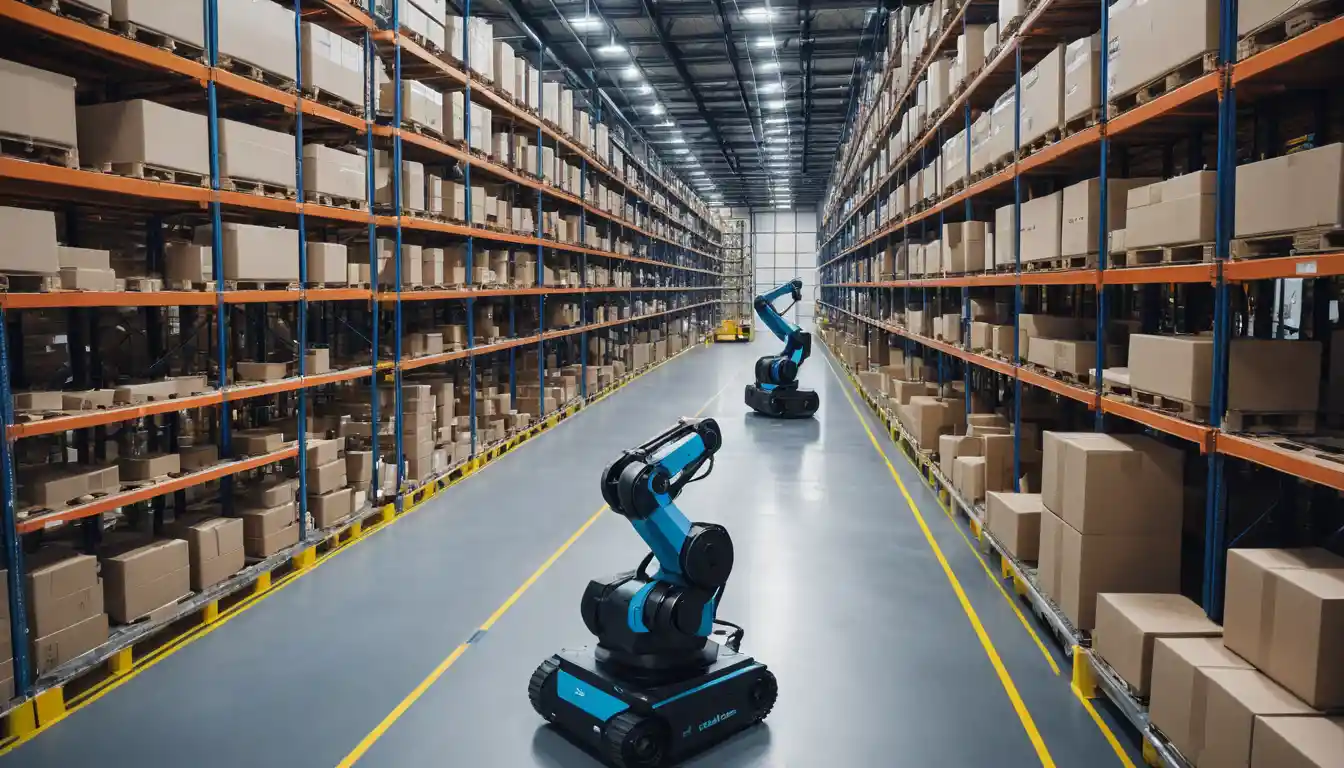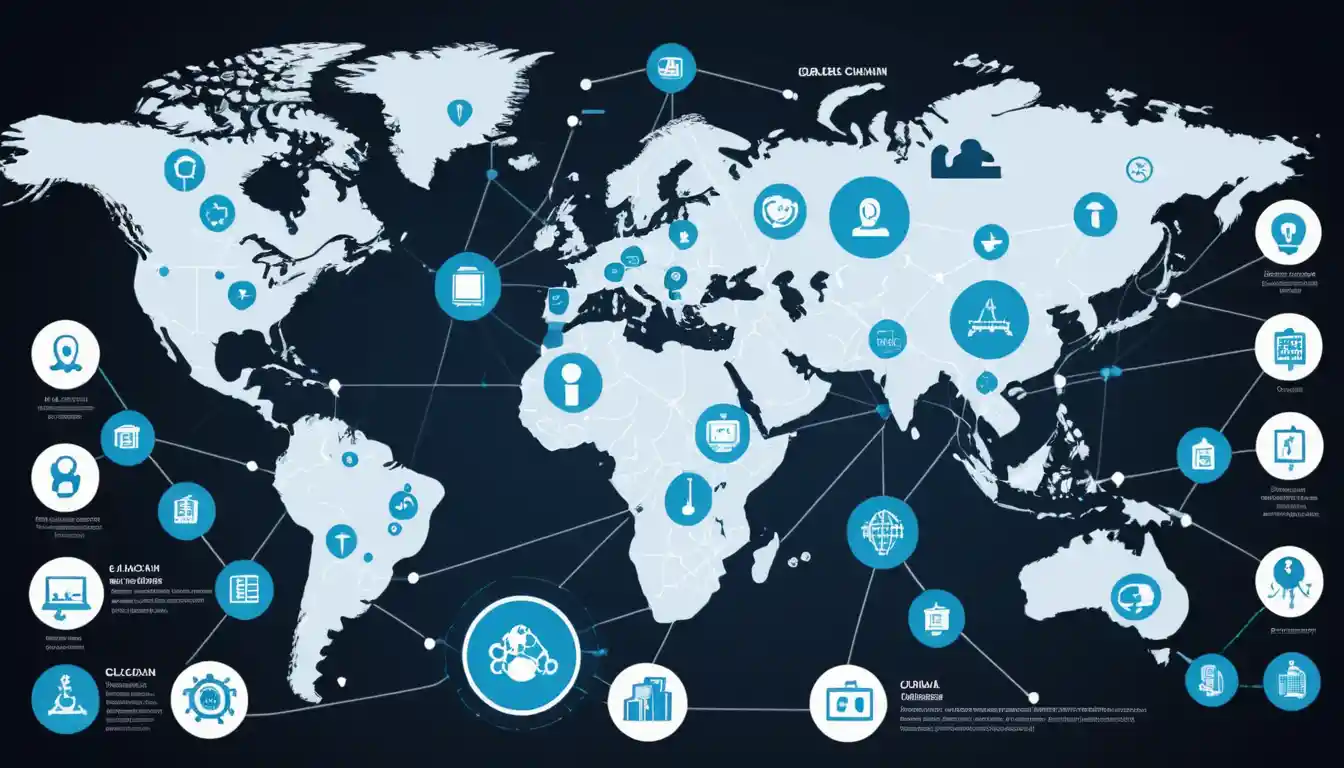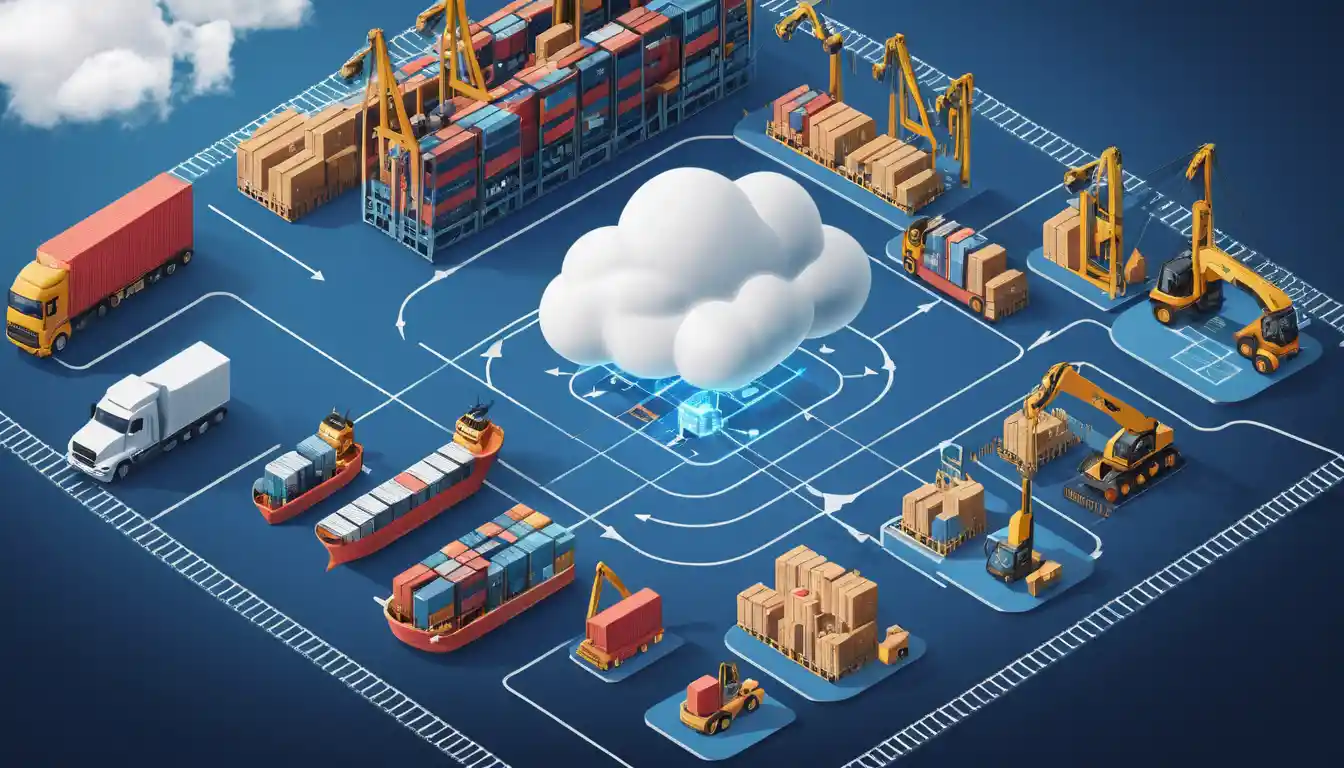Supply Chain Technology Examples for Enhanced Efficiency

In the fast-paced world of business, especially in India, ensuring a smooth and efficient supply chain is crucial for growth and success. The advent of new and innovative supply chain technologies has transformed the way companies manage logistics, inventory, and operations. From artificial intelligence (AI) to blockchain. These tools are not just improving efficiency but also reshaping the future of industries across the globe. In this post, we’ll dive into some of the best supply chain technology examples that are revolutionizing industries in India.
Why Supply Chain Technology Matters
The supply chain is the backbone of any business, from manufacturing to distribution. A well-managed supply chain ensures that products reach customers on time, quality is maintained, and costs are minimized. However, challenges like delayed shipments, inventory mismanagement, and lack of visibility can hamper the smooth running of operations. This is where supply chain technology examples come into play. These technologies empower businesses to not only overcome these challenges but also boost their productivity and customer satisfaction levels.
In India, the logistics sector has seen rapid growth in recent years, making it a prime opportunity for businesses to adopt these technologies. By embracing these innovations, companies can meet the demands of a global market while enhancing their competitiveness.
Artificial Intelligence (AI) in Supply Chain Management
AI has emerged as one of the most impactful supply chain technology examples in recent years. With its ability to process large amounts of data and provide valuable insights, AI is revolutionizing supply chains worldwide, and India is no exception.
How AI Enhances Supply Chains:
Predictive Analytics: AI uses data from previous transactions to predict future trends, helping businesses anticipate demand fluctuations and adjust their inventory accordingly.
Automation: From warehouse management to sorting, AI-driven robots are now capable of performing tasks with greater speed and accuracy than human workers, reducing labor costs and errors.
Route Optimization: AI can analyze traffic patterns and weather data to determine the most efficient delivery routes, ensuring timely deliveries and lower transportation costs.
Companies in India are already utilizing AI to optimize their supply chains. For instance, logistics giants like Blue Dart and Delhivery are employing AI-driven systems to enhance route planning, inventory management, and predictive maintenance.

Internet of Things (IoT) in Supply Chain Management
The Internet of Things (IoT) refers to the network of physical devices embedded with sensors and software that connect and exchange data over the internet. In supply chains, IoT enables real-time monitoring and tracking of goods, inventory, and assets.
How IoT Transforms Supply Chains:
Asset Tracking: Using IoT sensors, businesses can track the location and condition of their assets, such as goods in transit or inventory in warehouses, ensuring they are safe and accounted for.
Real-Time Updates: IoT devices send real-time updates to managers, which allows for proactive decision-making in case of any disruptions in the supply chain, such as delays or damages.
Inventory Management: IoT sensors embedded in warehouses can monitor stock levels and automatically trigger reorders when inventory reaches a certain threshold, reducing the risk of stockouts or overstocking.
In India, the use of IoT in supply chain management is becoming increasingly popular. Companies like Mahindra & Mahindra and Tata Motors use IoT-enabled devices to monitor the health of their vehicles and equipment, preventing costly breakdowns and downtime.
Blockchain for Transparent and Secure Supply Chains
Blockchain technology is making waves in the supply chain industry by providing a transparent, secure, and decentralized ledger of transactions. In traditional supply chains, tracking the movement of goods from manufacturer to consumer can be complex and prone to fraud. Blockchain eliminates these challenges by creating a tamper-proof record of every transaction.
Blockchain Impact on Supply Chains:
Transparency: Blockchain ensures that all transactions and movements of goods are recorded and cannot be altered, providing full visibility for all stakeholders.
Security: The decentralized nature of blockchain makes it highly secure, reducing the risk of data breaches or fraud.
Traceability: Blockchain allows for better traceability of products, helping businesses track items from raw materials to finished goods, ensuring compliance with quality standards and regulations.
Cloud Computing for Real-Time Supply Chain Management
Cloud computing has become a game-changer for businesses looking to improve their supply chain operations. By storing data and applications on the cloud, businesses can access real-time information from anywhere, at any time. Cloud solutions provide the flexibility and scalability needed to manage complex supply chain technology examples efficiently.
Benefits of Cloud Computing in Supply Chains:
Centralized Data Storage: Cloud platforms store data in a centralized location, making it easily accessible to all team members across different departments, improving collaboration and decision-making.
Cost Efficiency: Cloud solutions eliminate the need for expensive on-premise hardware and IT infrastructure, making it more affordable for small and medium-sized businesses.
Scalability: As businesses grow, they can scale their cloud solutions to accommodate increased demand without significant upfront investments.
Companies in India are increasingly moving to the cloud for supply chain management. Brands like Flipkart and Reliance Retail have adopted cloud-based solutions to streamline their logistics and warehouse operations.
Robotics and Automation in Warehouses
Warehouse management is a critical component of the supply chain, and robotics and automation are playing a vital role in improving efficiency in this area. From robotic picking systems to automated conveyor belts, technology is taking over the manual labor traditionally required in warehouses.

How Robotics and Automation Benefit Supply Chains:
Increased Speed: Robots can sort and pick items much faster than human workers, reducing the time it takes to fulfill orders and improving overall throughput.
Accuracy: Automation reduces the likelihood of human error in tasks like inventory management, order picking, and shipping.
Cost Reduction: While the initial investment in robotic systems may be high, businesses can save on labor costs and increase efficiency in the long run.
Advanced Analytics for Data-Driven Decisions
Advanced analytics refers to the use of statistical algorithms, machine learning, and data mining to analyze supply chain data and provide actionable insights. Businesses can make better decisions, identify inefficiencies, and predict future trends by leveraging these technologies.
Advantages of Advanced Analytics in Supply Chains:
Demand Forecasting: Advanced analytics can analyze historical data to predict future demand patterns, helping businesses optimize inventory levels and reduce waste.
Cost Reduction: Analytics helps businesses identify inefficiencies in their supply chain, enabling them to make data-driven decisions to reduce costs.
Improved Customer Experience: By understanding customer preferences and demand patterns, businesses can deliver personalized services and meet customer expectations more effectively.
Many Indian companies are adopting advanced analytics in their supply chain operations to stay competitive. For example, companies like Mahindra & Mahindra use predictive analytics to forecast demand and optimize production schedules.
Frequently Asked Questions
What are the benefits of AI in supply chain management?
AI significantly enhances supply chains by predicting demand, automating tasks, and optimizing routes. As a result, it reduces labor costs, minimizes errors, and ensures timely deliveries, ultimately improving overall efficiency and customer satisfaction.
How does IoT improve supply chain operations?
IoT plays a crucial role by enabling real-time tracking of assets, inventory, and shipments. Consequently, it provides instant updates for proactive decision-making, ensures inventory accuracy, and reduces stockouts or overstocking. This, in turn, makes the supply chain more responsive and efficient.
Why is blockchain important for supply chain transparency?
Blockchain is vital as it provides a secure, tamper-proof record of transactions, ensuring full visibility and traceability. In addition, it reduces fraud, enhances security, and allows businesses to track goods from raw materials to finished products, ensuring compliance with quality standards.

How does cloud computing help in supply chain management?
Cloud computing offers centralized data storage, which enables real-time access to supply chain information. Furthermore, it improves collaboration, reduces infrastructure costs, and provides scalability for growing businesses. As a result, cloud computing helps streamline logistics and warehouse operations, enhancing overall efficiency.
What role does robotics play in warehouse management?
Robotics plays a key role by accelerating warehouse operations through automating picking, sorting, and packing. As a consequence, it increases speed, reduces human error, and cuts labor costs. Ultimately, robotics improves order fulfillment accuracy and efficiency in supply chain management.
Conclusion
The landscape of supply chain management is rapidly changing with the introduction of innovative technologies. By adopting these technologies, businesses in India can enhance their operational efficiency, reduce costs, and improve customer satisfaction. Whether it’s AI, IoT, blockchain, cloud computing, robotics, or advanced analytics, each of these technologies offers unique advantages. Therefore, businesses can streamline operations and boost productivity by integrating these innovations into their processes.
If you’re a business owner in India looking to optimize your supply chain technology examples, now is the perfect time to explore these technologies. Don’t wait for the competition to get ahead – embrace these innovations today and take your business to the next level.





